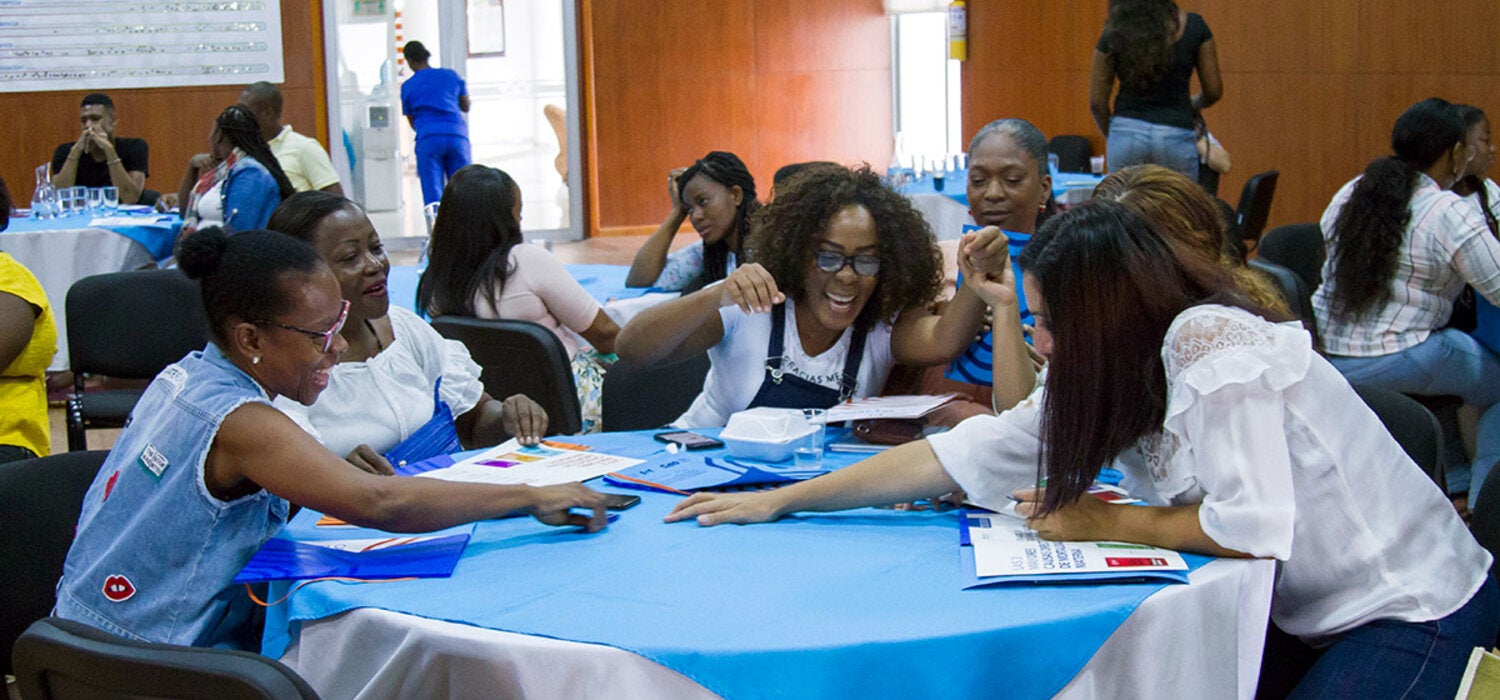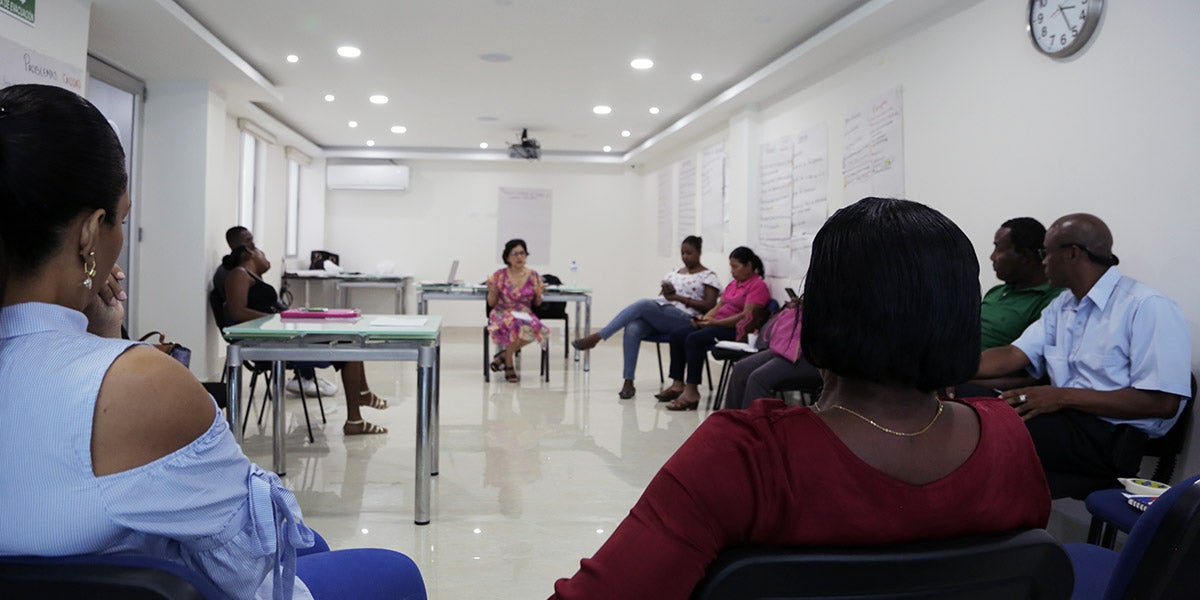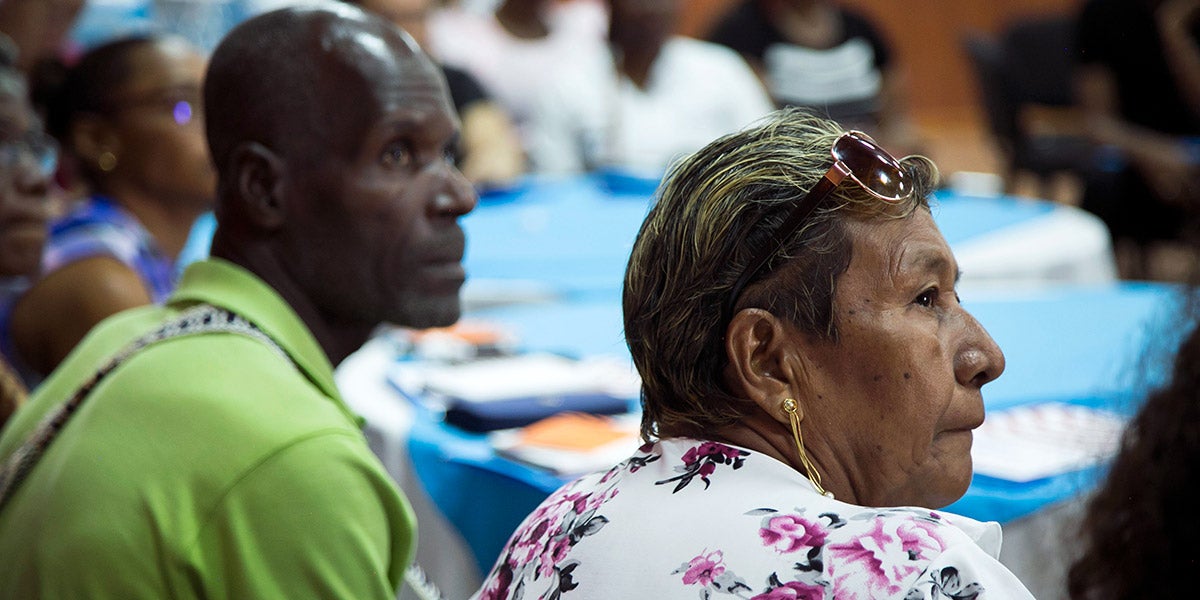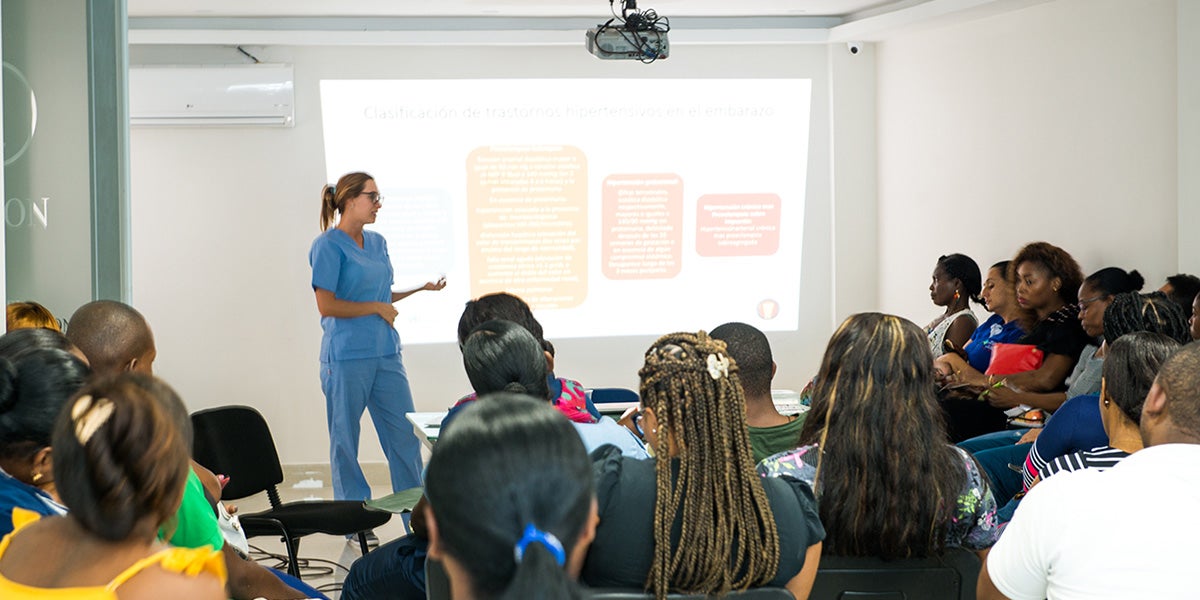Cilia says that quality has improved considerably now that the entire staff has these tools, compared to before when these resources were not available.
Strengthening health care systems by improving the skills of health workers was in fact the objective of the first phase of the project launched by PAHO in Chocó. The second phase focused on working with the community to learn about their needs and adapt the project accordingly.
A committed community
The project first worked on empowering the family, the community, and community partners. Different dialogue sessions were organized (with women of childbearing age, men, adolescents, and community leaders) to hear their opinions on health topics of interest to them.
“Dialogue is one step in the empowerment process, the idea being that the same people that participate in it will take ownership of what was discussed,” said Ana Ligia Molina, coordinator for the Enfants du Monde organization in Latin America, which was crucial to the work in the community.
One of the 60 participants in the dialogue session with women was 36-year-old Yurledys Ramírez. Yurledys has two children and was born in Quibdó. She lives with her children, mother, siblings, nieces and nephews in a house located in Niño Jesús, a humble neighborhood with dirt roads on the banks of the Caví river. Yurledys works in another family’s home in the morning, and in the evening she pays a ‘rapi’ (motorcycle taxi, which is the most common type of transportation in Quibdó) to take her to the university, where she studies child pedagogy.
This Chocoan resident believes that the work that has begun in the community will pay off: “We get together with other women here to see what problems have been affecting health in the community. I realized in the workshop how important it is for pregnant women to have checkups to see if the baby is doing ok,” she said.
Manuel Gil of the Save Chocó Committee was one of the community leaders that facilitated the sessions. “We are protecting the health of pregnant women and their children, which is a responsibility of both the family AND the community. We’ve made progress. Today we know that women have the right to a birth attendant. This is a major achievement in terms of equity and rights,” said this leader, who is widely known in Quibdó and is the person the locals turn to when they need help.
Residents also see midwives, which is why working with them has been key to bringing healthcare institutions to the community and vice versa. Luis Mosquera is one of the few men who works in this field. He is from the community of Angostura, in the municipality of Tadó. Luis feels it is essential to have people who can deliver babies when you live in remote areas where there are no doctors or nurses.
“There are more facilities now than before, and our daughters are already being referred to the hospital. We ask any women who have signs of risk or are first-time mothers to go there,” he said. One successful outcome of the trainings has been that community leaders understand the importance of recognizing the warning signs and preventing risks, so that women can be quickly transported to the health center.
For Dr. Andrés De Francisco, director of PAHO’s Family, Gender, and Life Course Department, traditional midwives in regions such as Chocó play a very important role in reducing maternal mortality. “This project shows that we can indeed work with the communities and midwives to improve health. We hope this will be an example that can be replicated in other areas,” he said.
In addition to PAHO/WHO, CLAP, and Enfants du Monde, other partners involved in the project were the Colombian Federation of Obstetrics and Gynecology (FECOLSOG), the Intensive Care and Obstetrics Research Group (GRICIO), and the Colombian Neonatology Association (ASCON). Colombia’s Ministry of Health, the Departmental Secretariat of Chocó, the Municipal Secretariat, healthcare providers and the traditional midwives association were key participants in the development of the proposal.






